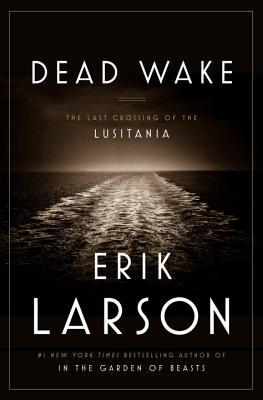
On May 1, 1915, with WWI entering its tenth month, a luxury ocean liner as richly appointed as an English country house sailed out of New York, bound for Liverpool, carrying a record number of children and infants. The passengers were surprisingly at ease, even though Germany had declared the seas around Britain to be a war zone. For months, German U-boats had brought terror to the North Atlantic. But the Lusitania was one of the era’s great transatlantic “Greyhounds”—the fastest liner then in service—and her captain, William Thomas Turner, placed tremendous faith in the gentlemanly strictures of warfare that for a century had kept civilian ships safe from attack.
Germany, however, was determined to change the rules of the game, and Walther Schwieger, the captain of Unterseeboot-20, was happy to oblige. Meanwhile, an ultra-secret British intelligence unit tracked Schwieger’s U-boat, but told no one. As U-20 and the Lusitania made their way toward Liverpool, an array of forces both grand and achingly small—hubris, a chance fog, a closely guarded secret, and more—all converged to produce one of the great disasters of history.
It is a story that many of us think we know but don’t, and Erik Larson tells it thrillingly, switching between hunter and hunted while painting a larger portrait of America at the height of the Progressive Era. Full of glamour and suspense, Dead Wake brings to life a cast of evocative characters, from famed Boston bookseller Charles Lauriat to pioneering female architect Theodate Pope to President Woodrow Wilson, a man lost to grief, dreading the widening war but also captivated by the prospect of new love.
Gripping and important, Dead Wake captures the sheer drama and emotional power of a disaster whose intimate details and true meaning have long been obscured by history.
~~~~~~~~~~~~~~~~~~~~~~~~~~~~~~~~~~~~~~~
Dead Wake tells the story of the the passenger liner, Lusitania. The narrative takes a slight deviation from Larson’s usual style. Instead of weaving together two distinct historical events, Larson weaves together the perspectives and experiences of those connected to the Lusitania and its fateful last journey, including the captain of the Lusitania, William Thomas Turner; the captain of the U-boat, Schwieger; the British intelligence office in charge of tracking the activities of the German U-boats; President Wilson of the United States; and the passengers and crew who would lose their lives when the ship foundered. The result is an exciting and suspenseful narrative. I even learned some new things about the Lusitania! Definitely worth a read.


